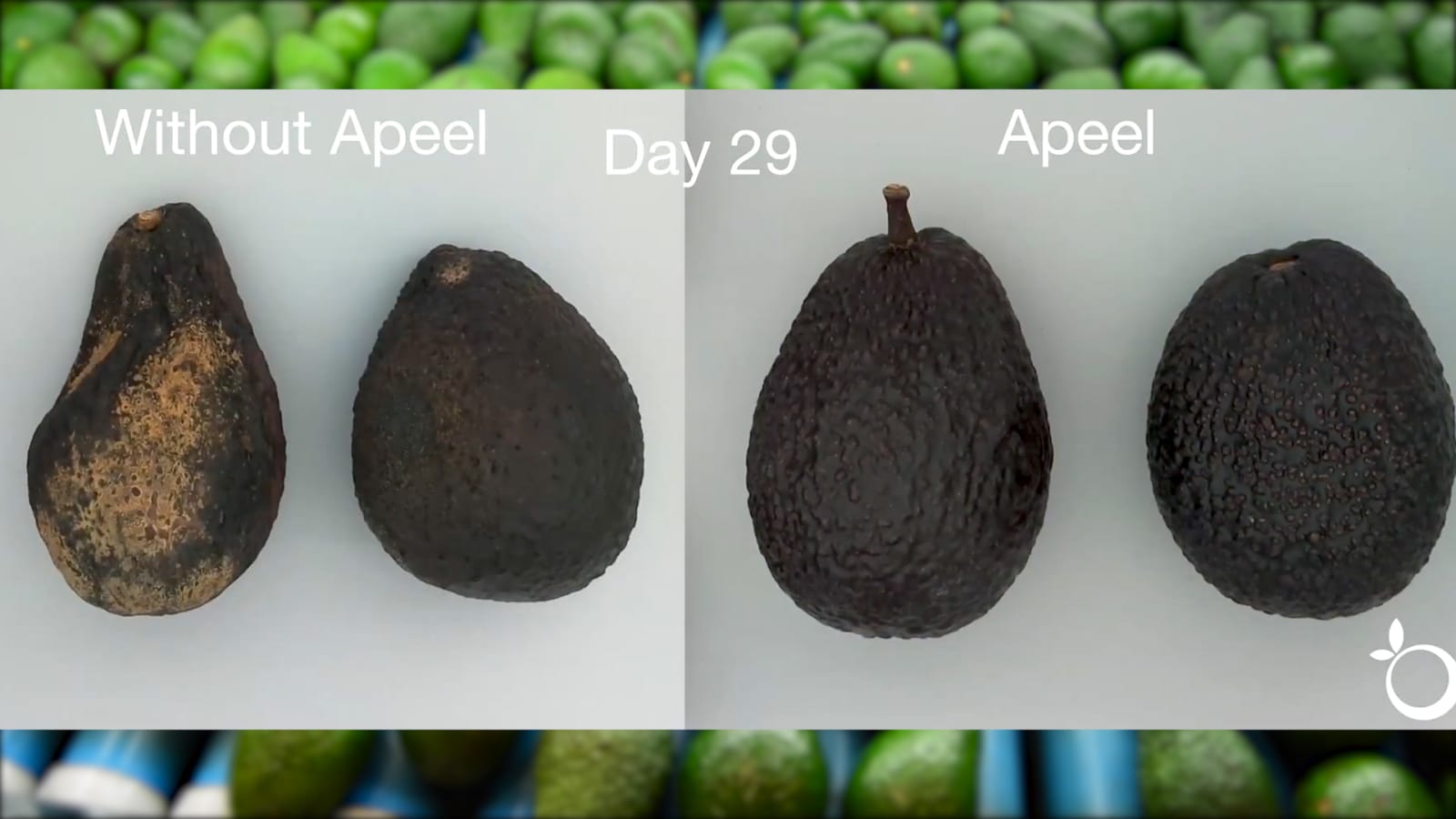Apeel Sciences announced $30M in new funding, in addition to its $250M raise earlier this year. Apeel Sciences develops plant-derived shelf life extension technology for fresh produce that improves quality and reduces food waste.
Why does this matter?
- According to the UN FAO, over 40% of fresh produce goes to waste.
- More than 50% of the global fruit supply is produced by smallholder farmers managing up to 5 hectares. However, many smallholder farmers suffer from hunger and extreme poverty.
- Farmers often struggle to get their produce to a marketplace before it. Not only is there food loss because of access to cold chain logistics, but this is also a financial less that leads to poverty.
- Apeel is addressing this problem by using plant-based materials to create a protective layer that seals moisture in and keeps oxygen out. As a result:
- Produce has a longer shelf life and stays fresh longer.
- Less produce goes to waste throughout the supply chain.
- Today, Apeel produce is available nationwide in the US, Germany and other countries across Europe, leading to a 50% reduction of food waste in supermarkets.
What’s next?
- Apeel’s technology will improve the lives of farmers and transform the current food system.
- The new funding will help smallhold farmers who suffer from food waste and insecurity extend crop shelf life and gain access to new markets. The initial markets will include: Mexico, Costa Rica, Peru, South Africa, Kenya, Uganda and Vietnam.
- Apeel’s technology will also be used to improve supply chains and reduce food loss without the use of refrigeration, while increasing access to nutrition and improving domestic economic opportunities for farmers and consumers.
- Using Apeel’s technology will help fight climate change by reducing emissions from food waste and transportation needs, as well as eliminating the need for single-use plastic packaging.
Thoughts
Apeel Sciences is working on an innovative product with real impact.
Implementing their technology will have both social and environmental impacts. The lingering question is how easy is it to implement their technology and what the economics look like for the farmer, which comes down to implementation costs and the additional sales farmers will be able to make.
About The Author

Daniel currently works at Lawrence Livermore National Laboratory. His original assignment was to maintain and update facility safety documentation for all facilities on-site, and perform risk analysis. Over time, his role has expanded to leading continuous improvement efforts through product management.
Concurrently, Daniel volunteers with Techstars, helping organize startup weekends, and with the American Institute of Chemical Engineers, organizing events on the local and national levels of the organization. He also volunteers with One World, and previously with Powerhouse Ventures, to source and screen startups for potential investment.
Daniel holds a BS in Chemical Engineering from UC Davis, and recently completed coursework in energy innovation from Stanford. His passion is at the intersection of sustainability, innovation, and business.

